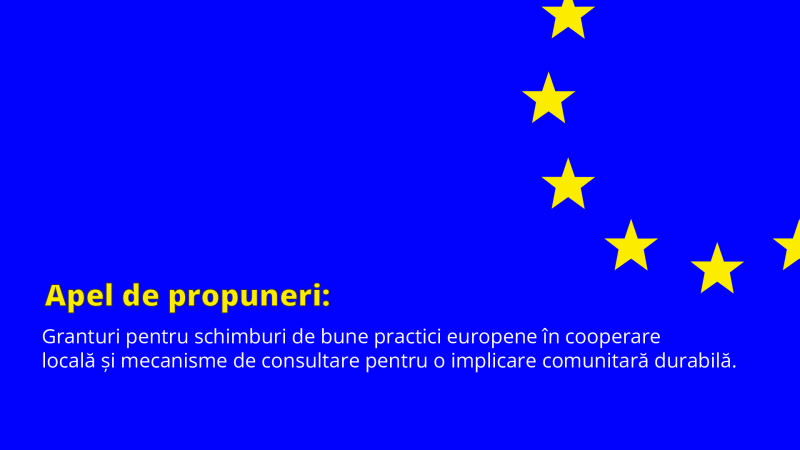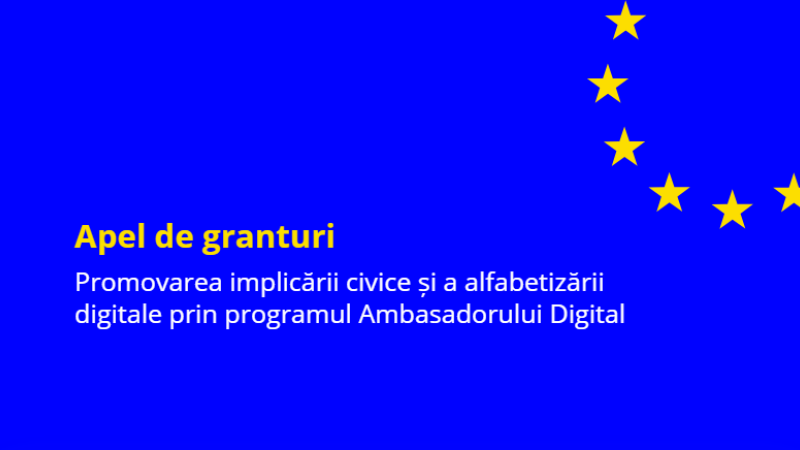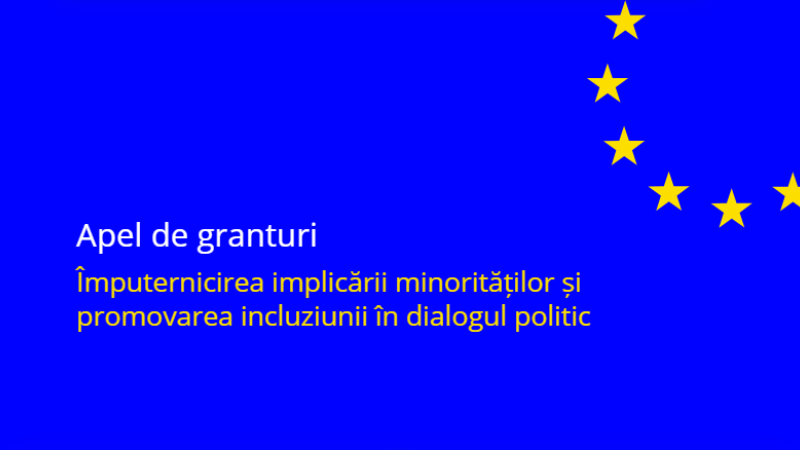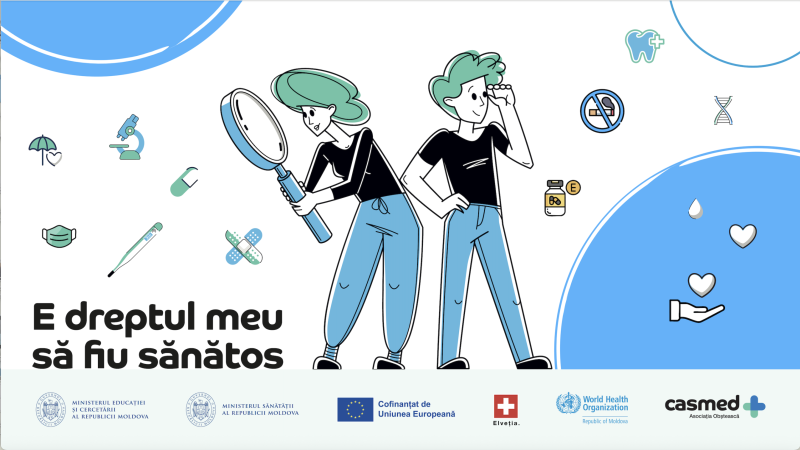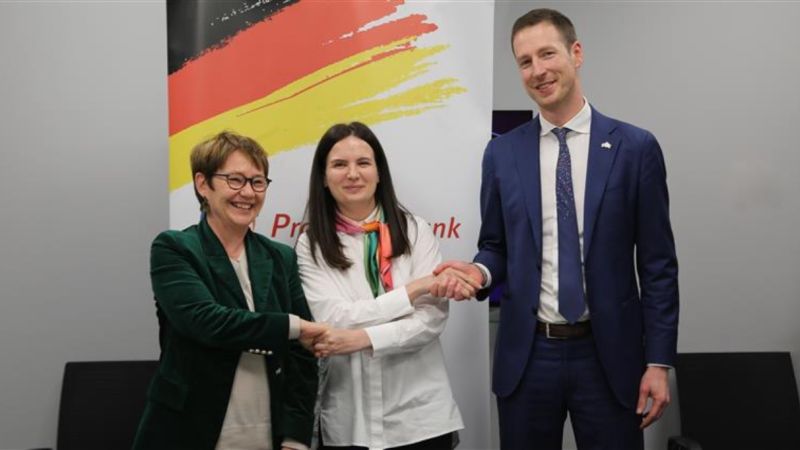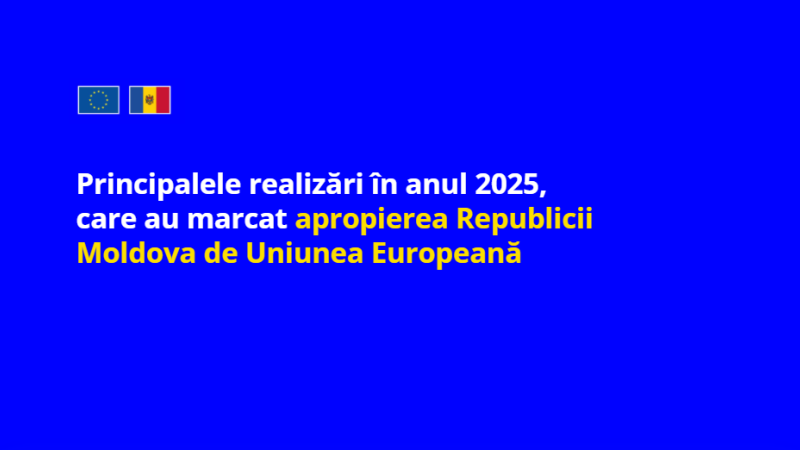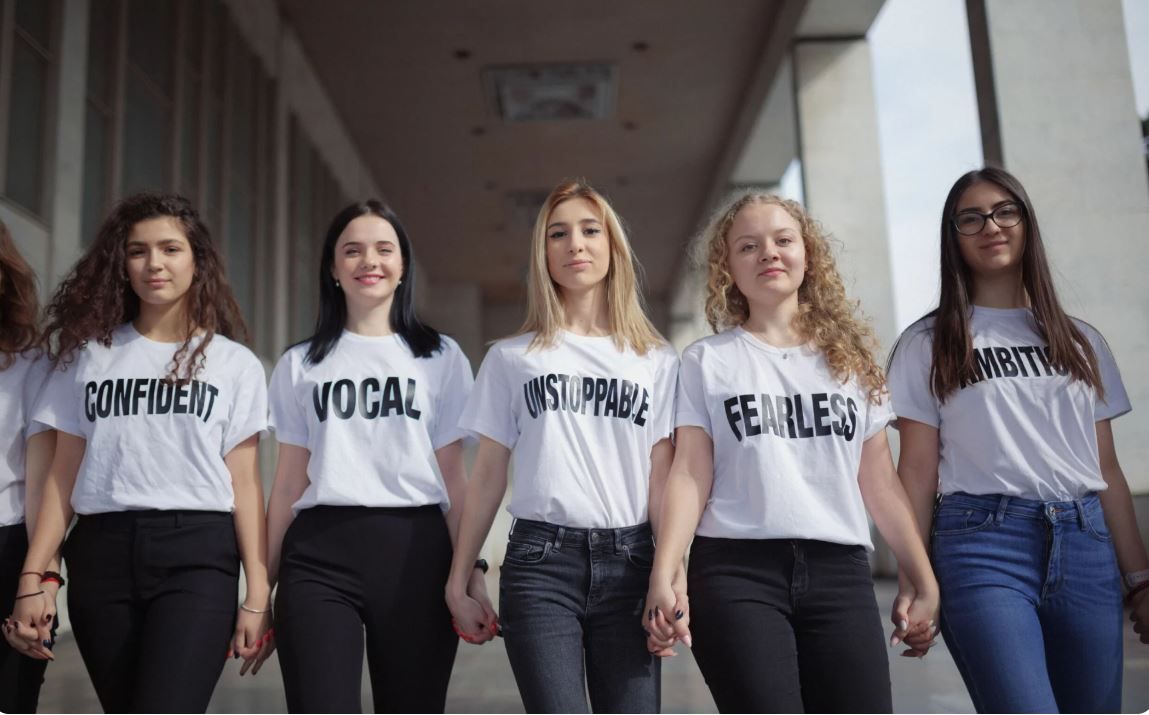
Combatem stereotipurile de gen în țările Parteneriatului Estic
În pofida unor progrese înregistrate, stereotipurile de gen încă influențează viața de zi cu zi în țările Parteneriatului Estic – Armenia, Azerbaidjan, Belarus, Georgia, Republica Moldova și Ucraina. Un Studiu de Referință privind normele și stereotipurile de gen din regiune, realizat în 2022 de programul UE pentru egalitatea de gen, a arătat că stereotipurile adânc înrădăcinate împiedică asigurarea egalității. Am rugat experți din Armenia, Azerbaidjan, Georgia și Ucraina să povestească despre cele mai comune stereotipuri de gen din regiune, pentru a înțelege cum poate fi îmbunătățită situația.
Stereotipul #1. Femeile ar trebui să se concentreze pe familie în detrimentul carierei”
Studiul de Referință arată că stereotipul „mamei bune” încă exercită presiuni asupra femeilor pentru ca acestea să acorde prioritate responsabilităților casnice în fața dezvoltării carierei, în special în primii ani de viață a copiilor lor.
„Aceste așteptări limitează participarea femeilor la piața muncii, împovărându-le în același timp cu cea mai mare parte a îngrijirilor neremunerate și a muncii casnice”, afirmă Guillem Fortuny, autor al evaluării de monitorizare 2024 privind normele și stereotipurile de gen în țările Parteneriatului Estic al UE, realizată, de asemenea, în cadrul inițiativei UE pentru Egalitatea de gen. „Practicile discriminatorii la locul de muncă sunt întărite de culturile tradiționale ale întreprinderilor, de valorile conducerii și de o lipsă generală de acceptare a femeilor în funcții de conducere”, a adăugat el.
Situația este exacerbată de lipsa concediului de paternitate, a concediului parental flexibil și a acordurilor de partajare a concediului în întreaga regiune. Stereotipul bărbatului ca principal întreținător de familie contribuie, de asemenea, la ideea că locul femeii este acasă.
Stereotipul #2. „Femeile și fetele nu au ce căuta în STEM” (știința, tehnologia, ingineria și matematica)
Dincolo de așteptările legate de gospodărie și îngrijire, stereotipurile de gen sunt răspândite și în domeniile educațional și profesional. Femeile din domenii dominate de bărbați precum știința, tehnologia, ingineria și matematica (STEM) din Ucraina au raportat că stereotipurile și așteptările societății le limitează adesea accesul la aceste cariere. Conform constatărilor din evaluarea EU 4 Gender Equality, lipsa modelelor vizibile și prejudecățile sociale descurajează fetele să urmeze cariere STEM.
„Multe femei tinere din Ucraina și din întreaga regiune sunt îndepărtate de domeniile STEM pur și simplu pentru că societatea nu le vede în aceste roluri”, spune Anna Orekhova, co-fondatoare și parteneră al ONG-ului InScience. Ea a adăugat că această presiune ar putea fi suficient de puternică pentru a determina femeile talentate să părăsească aceste domenii la începutul carierei.
Stereotipul #3. „Violența poate fi justificată”
Violența în bază de gen rămâne una dintre cele mai răspândite încălcări ale drepturilor omului, adânc înrădăcinată în inegalitatea de gen, discriminare și norme culturale și sociale dăunătoare. Potrivit Irinei Japharidze de la UN Women Georgia, în unele societăți, violența este justificată atunci când se crede că femeile au încălcat normele sociale.
Apărătorii locali și organizațiile societății civile care au participat la evaluarea EU 4 Gender Equality au indicat că toleranța față de violență rămâne ridicată în societate. Aceștia au subliniat necesitatea unor campanii de sensibilizare, a unui sprijin instituțional mai puternic și a unor inițiative educaționale începând de la o vârstă fragedă și implicând elevii, părinții și școlile.
„Un studiu realizat în Georgia în 2022 a arătat că aproximativ un sfert din populație încă mai crede că, în anumite cazuri, este justificat ca un soț să își bată soția”, spune Irina Japharidze.
Un alt aspect important este faptul că supraviețuitorii violenței au adesea dificultăți în a-și raporta experiențele. Pentru a aborda aceste convingeri adânc înrădăcinate, Irina Japharidze subliniază necesitatea unei abordări holistice pe mai multe niveluri. Politicile și legislația trebuie să fie sensibile la gen, iar instituțiile responsabile de aplicare a acestor legi – cum ar fi sistemul judiciar, furnizorii de asistență medicală și serviciile sociale – trebuie să fie mai bine echipate pentru a sprijini victimele.
Stereotipul #4. „Educația sexuală este inutilă”
Educația sexuală joacă un rol crucial în formarea unor atitudini sănătoase față de relații, gen și consimțământ, însă rămâne subestimată în multe societăți. Potrivit Irynei Rubis, șefa ONG-ului Pislyazavtra din Ucraina, lipsa educației cu privire la problemele legate de gen și sexualitate este un factor semnificativ al stereotipurilor.
„Atunci când întrebăm adolescenții și adulții despre sursele prejudecăților de gen, aceștia indică în mod constant lipsa de educație pe aceste teme ca fiind unul dintre principalele motive. Educația sexuală completă desființează miturile și stereotipurile dăunătoare legate de sexualitate, corp și roluri de gen. Oferind tinerilor informații exacte și încurajând un dialog deschis cu ajutorul unor formate cuprinzătoare de educație sexuală, nu numai că îmbrățișăm egalitatea de gen și reducem violența și discriminarea pe motive de gen, dar stimulăm toleranța generală și contribuim la formarea unei societăți echitabile”, spune Rubis.
Stereotipul #5. „Femeile cu dizabilități nu trebuie să fie parte din forța de muncă”
Femeile cu dizabilități continuă să se confrunte cu bariere semnificative la angajare. Evaluarea EU 4 Gender Equality a arătat că majoritatea femeilor cu dizabilități din țările Parteneriatului Estic și-ar dori foarte mult să fie angajate. Cu toate acestea, discuțiile din cadrul focus-grupurilor au confirmat faptul că se confruntă cu discriminare din partea recrutorilor, ceea ce face dificilă obținerea unor locuri de muncă bine plătite. În plus, lipsa unei educații incluzive de calitate, precum și barierele fizice, informaționale și comunicaționale din școli și universități limitează și mai mult oportunitățile acestora, lăsând multe femei fără calificările necesare pentru ocuparea unui loc de muncă.
A dori schimbări înseamnă a acționa
Drumul către egalitatea de gen în țările Parteneriatului Estic este complex, însă progresul este posibil prin educație continuă, promovare și prin combaterea stereotipurilor adânc înrădăcinate. Împuternicind persoanele să regândească normele depășite și promovând egalitatea de șanse pentru toți – fie la locul de muncă, în educație sau acasă – putem crea o societate în care potențialul fiecăruia este valorificat.
